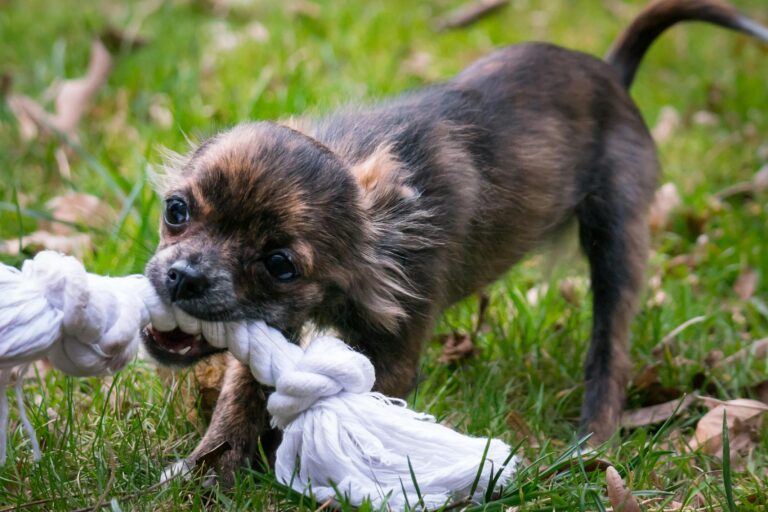The Importance of Early Socialization for Your Chihuahua
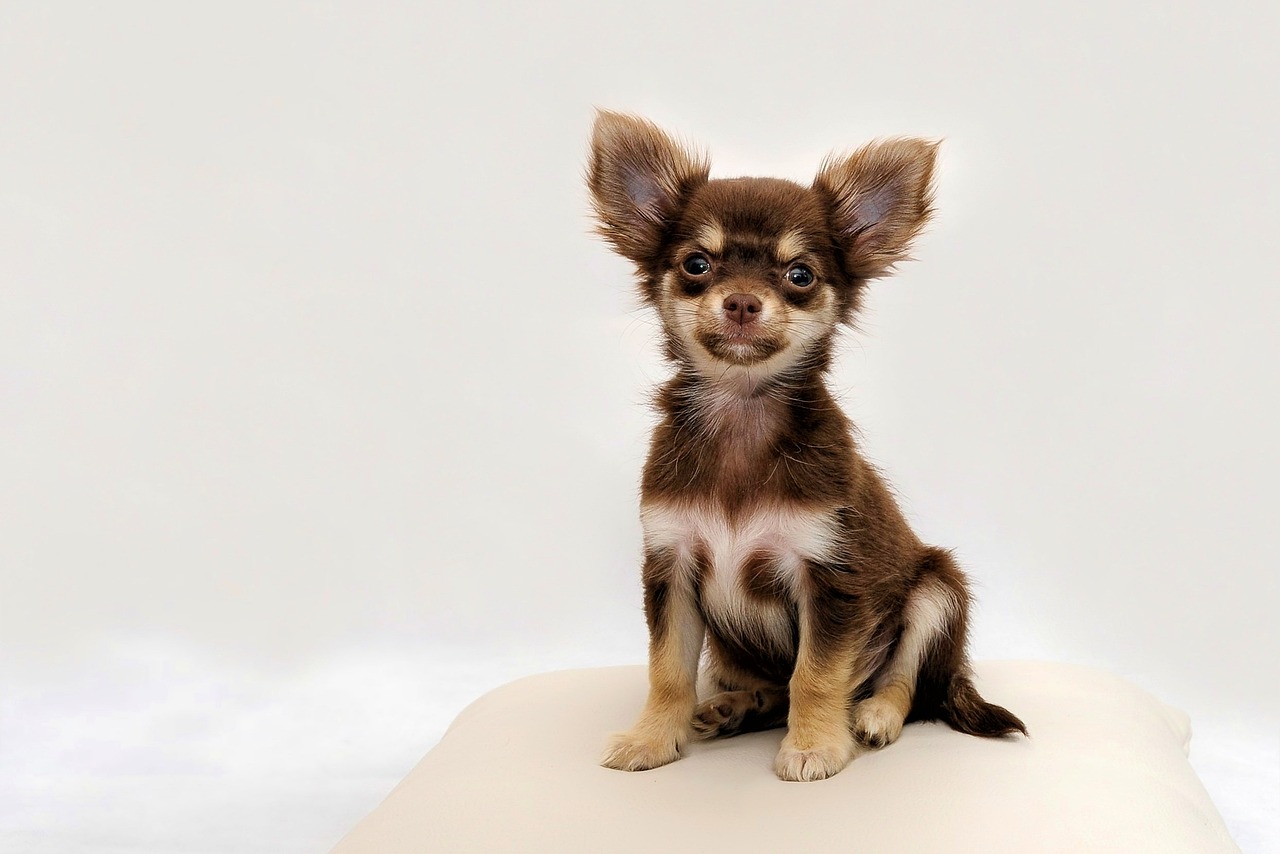
Chihuahuas may be small in size, but they have big personalities. To ensure they grow up confident and well-adjusted, early socialization is crucial. Socializing your Chihuahua at a young age helps them learn how to interact with the world around them in a positive way, reducing the likelihood of fear, anxiety, and aggression later in life. This process exposes your Chihuahua to new experiences, people, animals, and environments, helping them feel more comfortable in a variety of situations.
1. What is Socialization and Why is it Important?
Socialization is the process of exposing your Chihuahua to different environments, people, sounds, and other animals to help them become familiar with new experiences. For Chihuahuas, early socialization is especially important because they are a small, sensitive breed that can be prone to anxiety and fear-based behaviors if not properly introduced to the world around them. Proper socialization builds their confidence and allows them to become well-mannered, happy companions.
1.1 Definition of Socialization
Socialization refers to the structured process of gradually introducing your Chihuahua to new experiences, helping them learn how to react in a calm and confident manner. This includes exposing them to a wide variety of people, different environments, and interactions with other dogs and animals. The goal is to reduce fear and uncertainty while promoting positive behaviors.
Socialization is not just about exposure but about teaching your Chihuahua how to behave in different situations. It helps them understand that new environments or unfamiliar people are not something to fear, leading to a Chihuahua that is more adaptable and well-adjusted. Without proper socialization, Chihuahuas can become fearful, anxious, or aggressive, especially when they encounter new situations as adults.
1.2 Benefits of Early Socialization
Early socialization offers numerous benefits for Chihuahuas. The earlier you start the process, the more likely it is that your dog will grow up to be confident and well-behaved. Some of the key benefits include:
- Reduced Anxiety and Fear: Well-socialized Chihuahuas are less likely to react fearfully to new people, animals, or situations. They learn to approach unfamiliar experiences with curiosity rather than fear, making them more relaxed in social settings.
- Decreased Aggression: Chihuahuas that are not socialized early may develop aggression toward other dogs, strangers, or even children. Socialization teaches them that not all new things are threats, helping to reduce aggressive behaviors.
- Improved Behavior in Public: A well-socialized Chihuahua is much easier to take out in public spaces like parks, streets, or restaurants. They’re more likely to behave well in these environments because they’re familiar with different sights, sounds, and social situations.
In short, early socialization helps your Chihuahua become a more confident, relaxed, and well-mannered dog. It ensures that they can handle a variety of situations without becoming overly anxious or aggressive, which makes for a more enjoyable companionship.
1.3 The Critical Socialization Period
The most important time for socializing your Chihuahua is during the critical socialization period, which takes place between 3 and 14 weeks of age. During this time, puppies are especially receptive to new experiences, making it the ideal period to introduce them to different environments, people, and other animals.
After 14 weeks, a Chihuahua’s ability to adapt to new situations decreases, which means they may be more fearful or cautious when encountering new experiences. For this reason, it’s essential to start socialization early to ensure they are comfortable in various settings later in life. While socialization can still be done after this period, it may take more time and effort to help older Chihuahuas overcome fears or anxieties that have developed.
To make the most of the critical socialization period, try to expose your Chihuahua to a variety of experiences, including meeting different people, going to new places, hearing different sounds, and interacting with other pets. The goal is to provide positive experiences so that they associate new things with good feelings rather than fear.
2. How to Socialize Your Chihuahua
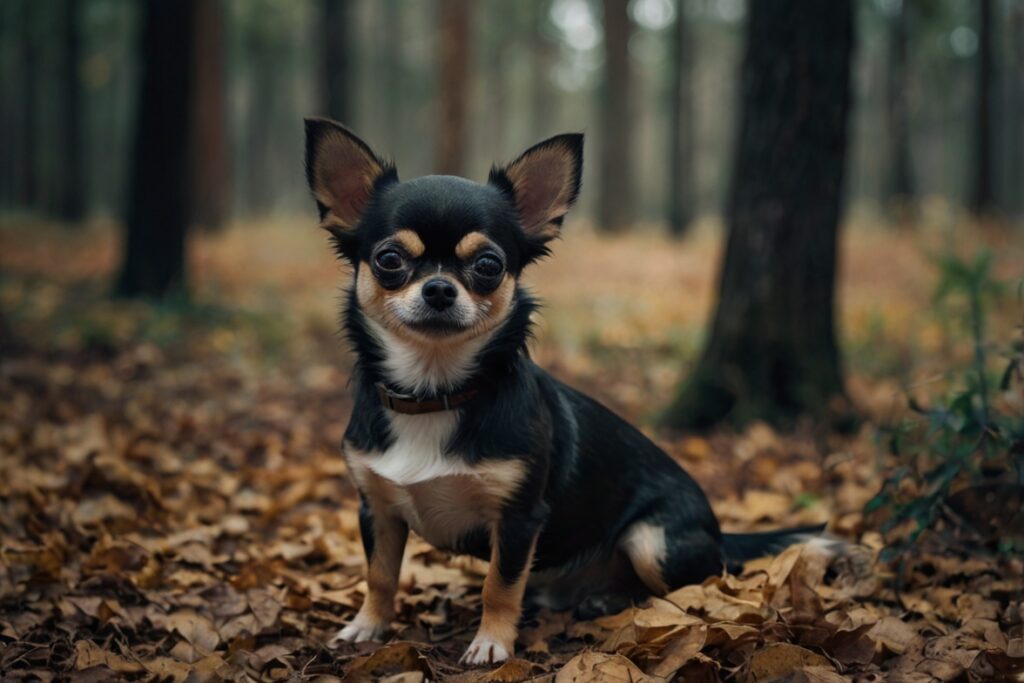
Properly socializing your Chihuahua involves a combination of introducing them to new experiences and ensuring that these experiences are positive. The key is to expose them to different situations gradually and to provide plenty of positive reinforcement when they react well. Whether it’s meeting new people, interacting with other animals, or getting comfortable in new environments, a slow and steady approach is essential.
2.1 Introducing Your Chihuahua to New People
One of the most important aspects of socialization is getting your Chihuahua comfortable around new people. This can include friends, family members, children, and strangers. Chihuahuas can be cautious or even defensive around unfamiliar people, so it’s important to introduce them in a calm, controlled manner.
Start by having new people approach your Chihuahua gently and allow your dog to make the first move when it comes to interaction. Avoid overwhelming your Chihuahua with too many new people at once, and make sure that every encounter is positive. Offering treats and praise during these interactions will help your Chihuahua associate new people with good experiences.
It’s also helpful to introduce your Chihuahua to children, as they may react differently to kids than to adults. Supervise all interactions with children to ensure that your Chihuahua feels comfortable and safe.
2.2 Socializing with Other Dogs and Animals
Getting your Chihuahua used to other dogs and animals is another critical part of socialization. Some Chihuahuas can be territorial or aggressive toward other dogs, especially if they haven’t been exposed to other animals early on. To prevent this, start socializing your Chihuahua with other dogs at a young age.
Begin by introducing your Chihuahua to calm, well-behaved dogs in a controlled environment, such as a friend’s backyard or at a puppy class. Keep the interactions short and positive, and provide treats and praise when your Chihuahua behaves well. Over time, they’ll learn how to interact politely with other dogs.
You can also introduce your Chihuahua to other animals, such as cats or small pets, in a safe and controlled manner. The more animals they meet during their early socialization, the more comfortable they’ll be in multi-pet households or during visits to places where other animals are present.
2.3 Exposing Your Chihuahua to New Environments
In addition to socializing your Chihuahua with people and animals, it’s important to expose them to a variety of environments. This helps them become comfortable in different settings and prevents them from becoming anxious in new places.
Take your Chihuahua to parks, streets, car rides, and even pet-friendly stores to get them used to different sights, sounds, and smells. Start with quieter environments before moving on to busier areas, ensuring that your Chihuahua doesn’t feel overwhelmed. Encourage positive behavior by offering treats and praise during these outings.
Regular exposure to different environments will help your Chihuahua feel confident and relaxed in new surroundings, making them more adaptable in the long run.
3. Challenges of Socializing a Chihuahua
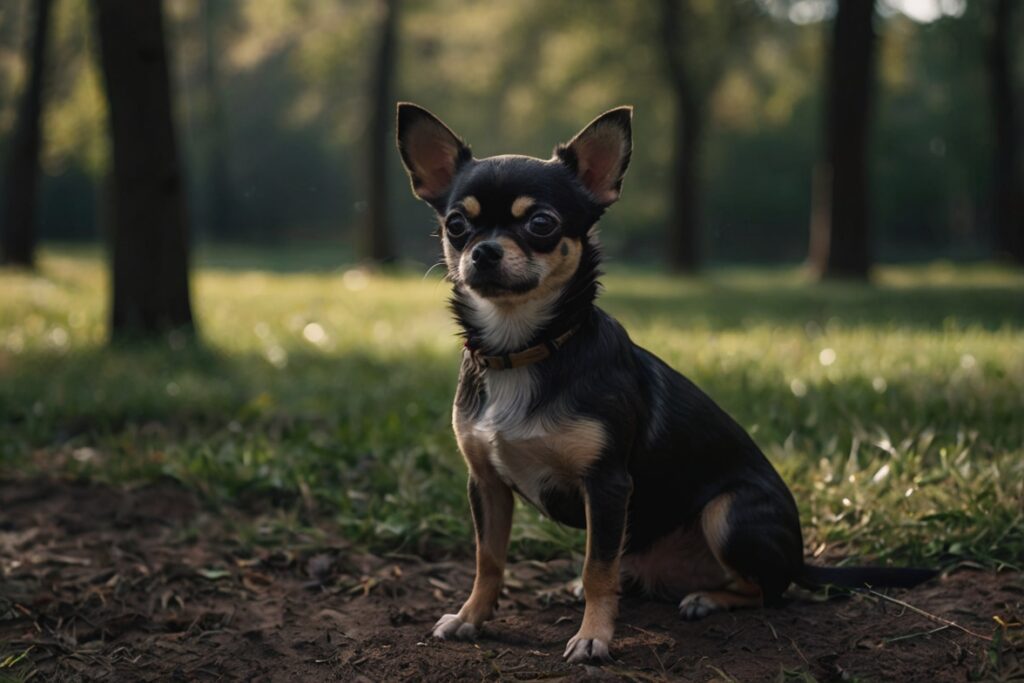
While socializing a Chihuahua is essential, it can sometimes be challenging, especially if your dog has a naturally shy, fearful, or aggressive temperament. Overcoming these challenges requires patience, consistency, and understanding of your Chihuahua’s needs. With the right approach, even the most hesitant Chihuahuas can become well-socialized and confident.
3.1 Overcoming Shyness or Fear
Chihuahuas are known for being a bit shy or fearful, especially around new people or in unfamiliar situations. If your Chihuahua is naturally timid, socializing them can be a slow process, but with patience, it’s possible to help them overcome their fears. Start by exposing them to new experiences in small, controlled doses. For example, instead of bringing your Chihuahua to a crowded park, begin by introducing them to one or two calm people in a quiet setting.
Positive reinforcement is key to helping shy or fearful Chihuahuas feel more confident. Reward them with treats and praise whenever they handle a new situation well. Never force your Chihuahua into an overwhelming situation—this can worsen their fear. Instead, let them explore at their own pace, and always provide a safe space for them to retreat to if they feel uncomfortable.
Gradual exposure to different environments and social situations will help build their confidence over time, but the process should always be at a pace your Chihuahua is comfortable with.
3.2 Preventing Aggression Toward Other Dogs
Some Chihuahuas may show aggression toward other dogs, especially if they haven’t been properly socialized early on. This can manifest as barking, growling, or even lunging at other dogs. If your Chihuahua displays aggressive behavior, it’s essential to address it through controlled socialization.
Start by introducing your Chihuahua to calm, friendly dogs in a safe, neutral space. Keep both dogs on a leash and maintain a safe distance at first. Gradually decrease the distance as your Chihuahua becomes more comfortable, rewarding them for calm behavior with treats and praise. If they react aggressively, remain calm and redirect their attention, never punishing them as this can exacerbate aggression.
Ongoing socialization training and possibly working with a professional trainer or behaviorist can help reduce aggressive tendencies over time.
3.3 Dealing with Overprotectiveness
Chihuahuas are known for their loyalty and often form strong bonds with their owners. However, this can sometimes lead to overprotective behaviors, where the Chihuahua becomes possessive of their owner and reacts aggressively toward anyone or anything that comes near them. This overprotectiveness can be addressed with proper socialization and training.
Start by teaching your Chihuahua that other people or dogs approaching you is not a threat. You can do this by allowing other people to give your Chihuahua treats, showing them that new individuals are a source of positivity rather than danger. Gradual desensitization, where you expose your Chihuahua to different people or situations while maintaining a calm, positive demeanor, can help reduce their overprotectiveness.
It’s also important to teach your Chihuahua basic commands like “sit” and “stay,” which can be useful in managing their behavior when they feel the need to protect you.
4. Long-Term Benefits of Socialization
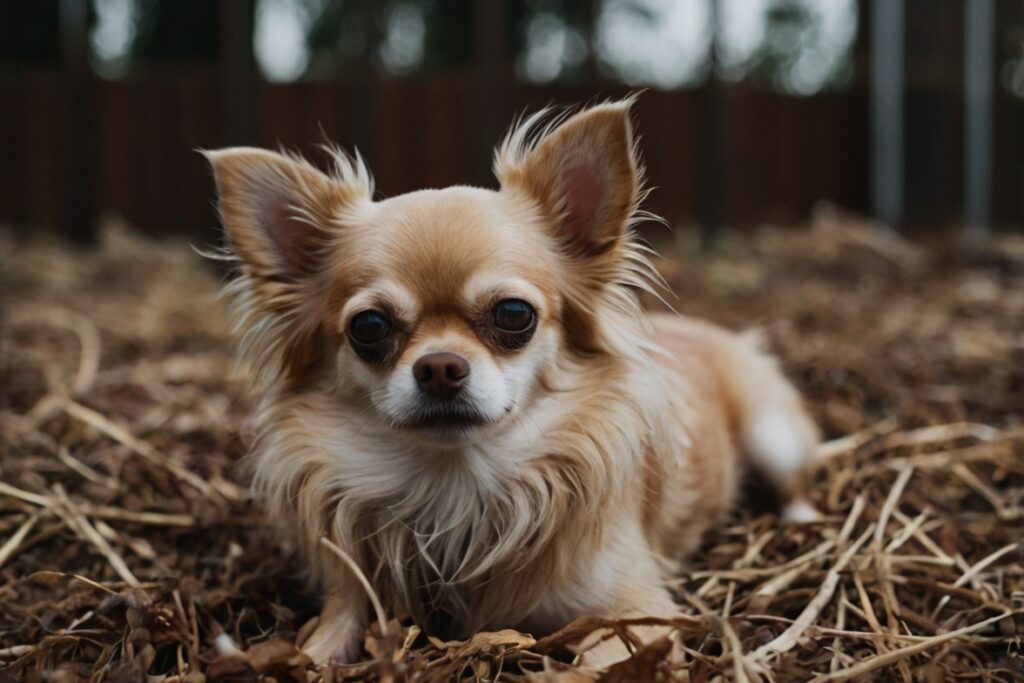
The benefits of socializing your Chihuahua extend well beyond their puppy years. Proper early socialization helps create a confident, well-behaved dog that is easier to manage in a variety of situations. A well-socialized Chihuahua is happier, more relaxed, and better equipped to handle the ups and downs of life.
4.1 A More Confident Chihuahua
One of the key long-term benefits of socialization is having a confident Chihuahua. Well-socialized Chihuahuas are more comfortable in their environment, less fearful of new experiences, and more likely to approach unfamiliar situations with curiosity rather than fear. This confidence allows them to enjoy life more fully and be more adaptable to change.
A confident Chihuahua is also less likely to react with aggression or anxiety in new or stressful situations, making them easier to manage in public spaces and around new people or animals.
4.2 Reducing Behavioral Problems
Many of the common behavioral problems in Chihuahuas—such as barking, aggression, and separation anxiety—can be prevented or minimized through early socialization. Socialization teaches Chihuahuas how to cope with new situations, reducing their tendency to react negatively. For example, a well-socialized Chihuahua is less likely to bark excessively when encountering strangers or other dogs, as they’ve learned that these situations are not threatening.
By reducing these common behavioral issues, socialization helps create a more harmonious living environment for both you and your Chihuahua.
4.3 Improving Your Chihuahua’s Overall Quality of Life
A well-socialized Chihuahua enjoys a higher quality of life because they experience less stress and anxiety in their day-to-day interactions. They are more adaptable, meaning they can handle new experiences—like visits to the vet, trips to the park, or meeting new people—without fear or aggression. This makes them more enjoyable companions and allows you to take them on more outings without worry.
In the long term, a well-socialized Chihuahua is happier, healthier, and better equipped to navigate the world with confidence.
| Challenge | Description | Solution |
|---|---|---|
| Shyness or Fear | Chihuahuas may be naturally shy or fearful of new experiences | Gradual exposure to new situations, positive reinforcement, patience |
| Aggression Toward Other Dogs | Some Chihuahuas may show aggression when encountering other dogs | Controlled socialization, gradual introductions, professional training |
| Overprotectiveness | Chihuahuas may become possessive and overprotective of their owners | Desensitization, rewarding calm behavior, basic command training |
Conclusion
Early socialization is one of the most important steps you can take to ensure that your Chihuahua grows up to be a confident, well-adjusted companion. By exposing them to a variety of people, environments, and animals, you reduce the risk of fear-based behaviors, aggression, and overprotectiveness. While socialization may come with its challenges, the long-term benefits are well worth the effort.
A well-socialized Chihuahua is happier, healthier, and more adaptable to new situations, which improves their overall quality of life. Whether it’s building their confidence, preventing behavioral problems, or simply making them easier to manage in public spaces, early socialization sets the foundation for a strong, positive relationship between you and your Chihuahua for years to come.



